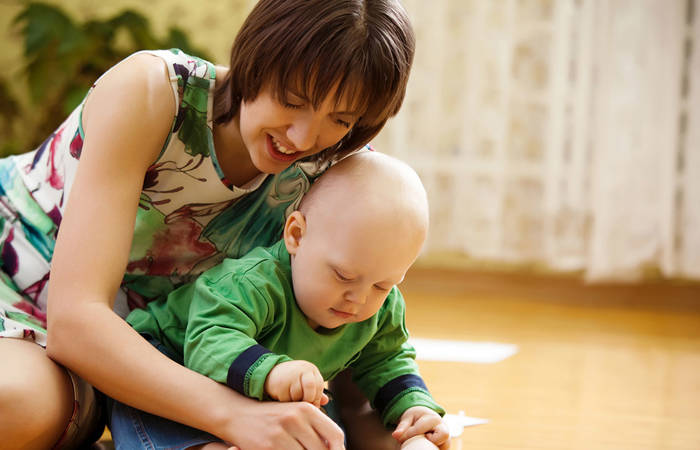Like what you see?
Sign up to receive more free parenting advice.
Thank you for subscribing to our newsletter!
Child Development

Credit: iStock.com/ilkercelik
For decades parents and communities have debated the most effective methods of disciplining children with many parents now looking for methods that avoid physical punishment.
Studies have found that while every child needs discipline and that discipline is an essential part of good parenting, traditional forms of discipline like physical punishment (such as hitting or smacking a child) can have negative consequences in the long term for the child’s health, particularly their behaviour and emotional wellbeing.
A New Zealand study released in December 2020 found that New Zealand parents are increasingly turning to positive discipline practices to guide and shape their child’s social, emotional and behavioural development, regardless of age groups, gender, levels of education attainment or ethnicities.
Jacqui Southey, Child Rights Advocacy and Research Director at Save the Children New Zealand says the most frequently used practices are: “Anticipating the child’s needs (95 per cent), allowing time for child to comply (93 per cent), praise for positive behaviours (92 per cent), acknowledging the child’s feelings (89 per cent), communicating expectations to the child (81 per cent), reasoning with the child and negotiating with the child (both 81 per cent).”
“Fathers are just as likely to use these strategies as mothers,” she adds.
Who do parents trust for guidance?
The study also explored who parents turned to for trusted information on discipline.
Friends and their partner were at the top of the list as trusted sources, 96 per cent and 95 per cent respectively.
They were followed by their parents (89 per cent), early childhood education (ECE) teachers (87 per cent), Facebook (83 per cent) and parenting websites (80 per cent).
“In a professional sense, parents predominantly relied upon ECE teachers for support, information and guidance with their discipline practices,” explains Ms Southey.
In fact, the study found parents were more likely to engage with an ECE teacher than other professional sources such as GPs or paediatricians.
Ms Southey explains that the engagement with ECE teaches appears to happen in an informal and ad hoc manner and it’s unclear whether ECE teachers are aware of the key support role they play.
“This is an area that could really benefit from further study to understand more on how this support is sought and provided, and how ECE teachers could be further supported in this role,” she says.
“An interesting finding in the study was the difference gender plays in the ways parents seek information,” Ms Southey adds.
“Fathers engaged with their partner at much higher rates than mothers, 88 per cent compared to 49 per cent.
“For fathers, their partner was the most used source of information across all sources while mothers reported much higher engagement with friends.
“Fathers also reported little engagement with social media as an information source.”
Another interesting finding was that parents within the study had very low engagement levels with the more traditional formal parenting classes or programs.
In Australia, Ms Southey says that there hasn’t been much research focus on positive parenting practices.
In fact, a 2019 study, called for more research into corporal punishment within Australian homes.
Positive parenting refers to evidence-based parenting techniques that help to nurture and shape children’s social emotional and behavioural development. To achieve positive parenting, it is important that we understand that discipline is different to punishment.Jacqui Southey
Stay up to date with the latest news and articles from First Five Years
Thank you for subscribing to our newsletter!
What is positive parenting?
“Positive parenting refers to evidence-based parenting techniques that help to nurture and shape children’s social emotional and behavioural development,” explains Ms Southey.
“To achieve positive parenting, it is important that we understand that discipline is different to punishment.
“Discipline is about nurturing, teaching and guiding our children in support of their social, emotional and behavioural development.
“Whereas punishment is about control and obedience and relies upon forcing children to behave in a desired way.”
Ms Southey says that positive parenting is about building a connection with a child, using empathy to teach and guide, with the aim to raise a child who respects the rules without the use of fear.
“Seeing the child as an individual, treating them with dignity and respect, and understanding fundamentals of positive parenting and child development, are essential elements in supporting children’s positive behavioural development,” she says.
The key to positive parenting is not only a parent’s understanding of their child’s development, but also understanding the impact of their behaviour on their child.
“Research has found long-term effects of positive parenting to include healthier brain development, particularly in children up to three years of age, a happier, calmer and more confident child and a reduction in negative social and emotional behaviours,” explains Ms Southey.
She highlights that it is important to remember that it is not about creating a perfect child that will never misbehave or have a tantrum.
“Those are a normal part of childhood as children are naturally expressive, impulsive and learning to understand and control their emotions,” she says.
“Positive parenting is good for both parents and children; children are guided and nurtured as they develop, and parents feel more confident and report having more positive relationships with their children.”
The harm in punishment
Coercive parenting practices use force or external pressures such as threats, yelling, commanding, belittling, excluding or hitting to ‘make’ a child behave in a desired way.
Ms Southey explains that while coercive parenting practices have been the traditional disciplining strategy used, they are on the decline.
“Studies in New Zealand show that parents’ attitudes toward physical punishment are changing over time with just 19 per cent of parents continuing to support the use of smacking, whereas 50 per cent believe there is never a reason to physically punish a child,” she says.
A big part of that is that research has found these practices to be harmful to children and do not produce the desired effect.
“Brain or neurological science has clearly found violent and degrading treatment of children harms the development of the brain and is likely to have long term effects depending on the severity,” Ms Southey explains.
“A large body of research exists on the harms of smacking and has led to smacking, hitting or spanking sitting along the same continuum as abuse and is now defined as an adverse childhood experience (ACE) contributing to immediate and long-term harm of children.
“Harmful consequences of physical and humiliating punishment of children can include exacerbating negative behaviours, loss of confidence, insecurity, and in severe cases, long term anxiety and or depression in children.”
There were parents in the study who reported using coercive discipline strategies, however, they were fewer than in previous studies and they reported using coercive discipline strategies less often than positive discipline strategies.
Ms Southey explains that the key for parents to move away from coercive parenting strategies to positive parenting is connecting to trusted sources of information to understand the benefits of positive parenting for themselves and their children.
“It is never too late to change, especially when it is a change for good,” she adds.






